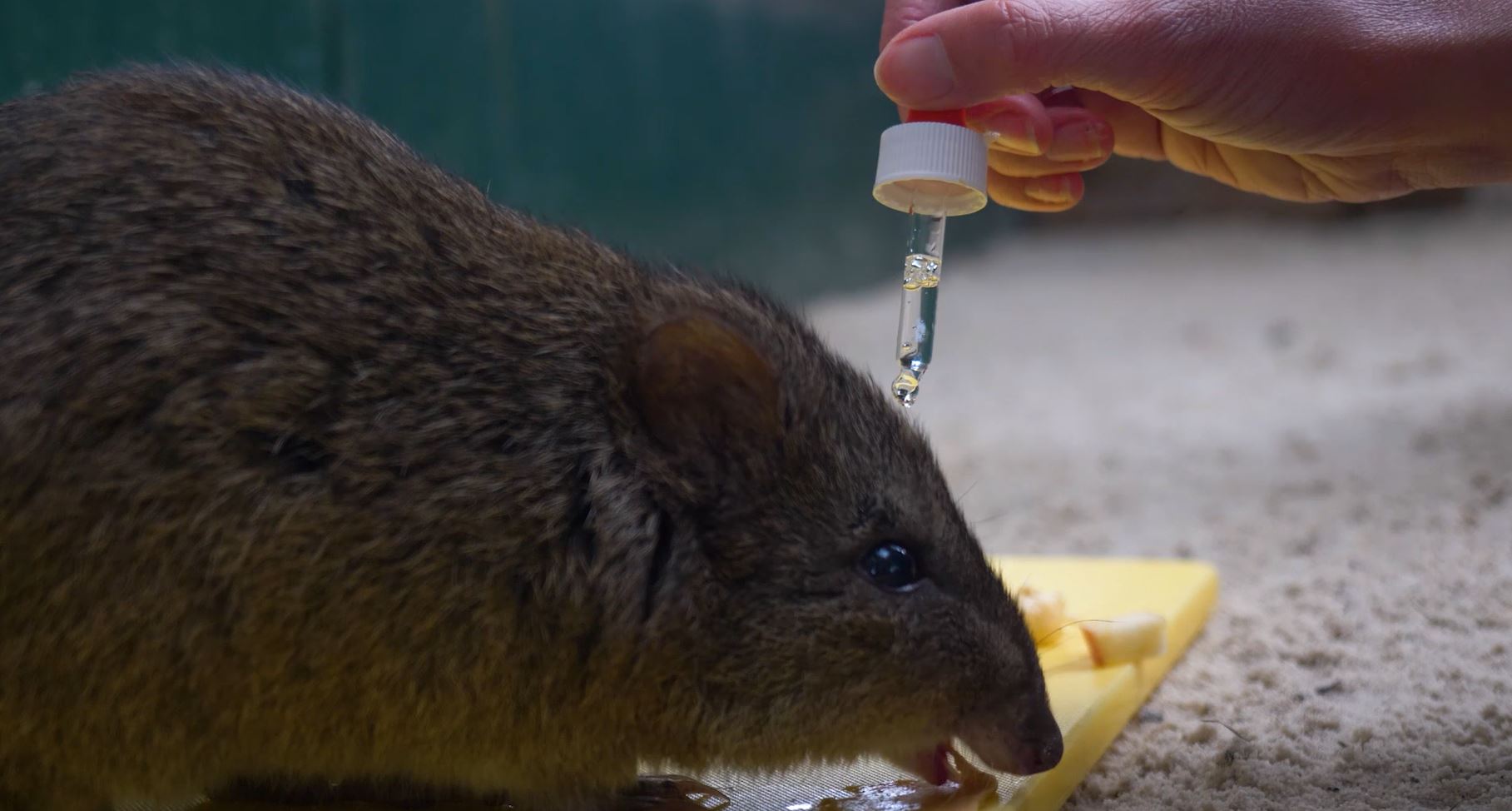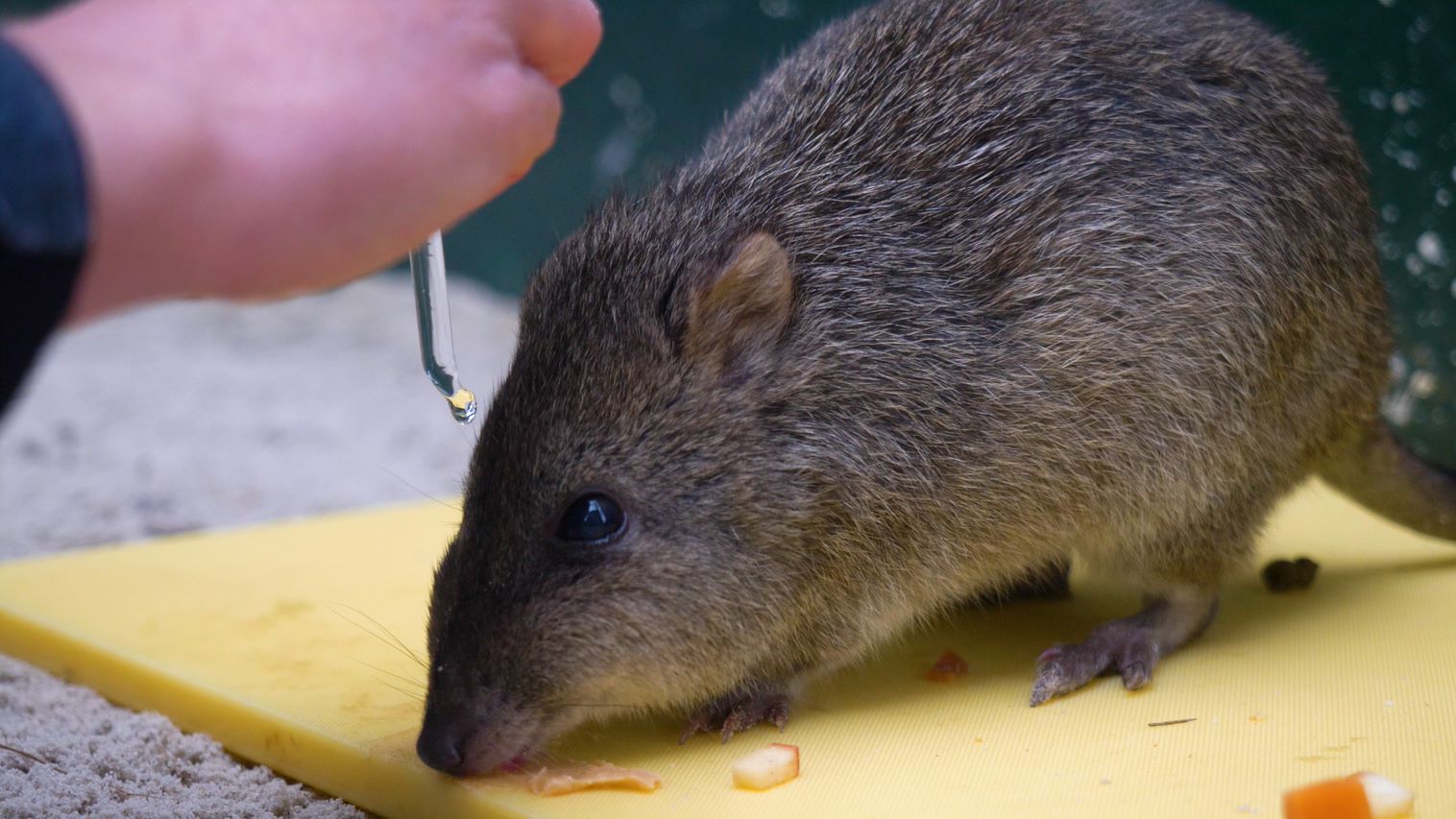Clever potoroos ‘eye-off’ clean bill of health
An eye drop a day is keeping the doctor away for a pair of Werribee Open Range Zoo’s clever Long-nosed potoroos.

Elderly marsupials, Pip and Kit, aged nine and 10 respectively, have learned how to voluntarily receive their eye-drop treatment from keepers, all without fuss.
It is an impressive achievement - the result of months of training sessions and building trust between keepers and the potoroos.
On their keeper’s cue, the inquisitive potoroos voluntarily station themselves on a small yellow platform placed in their exhibit space. This behaviour is positively reinforced with vegetables and a special treat of peanut butter. Then the keepers administer the eye-drops, all whilst the potoroos remain steady and in position.
Natives keeper Meagan Thornton said the stress-free approach provided a way for keepers to effectively manage a degenerative eye condition found in the potoroo species, which commonly occurs in their old age.
“Potoroos can live up to around 12 years of age, and Pip and Kit are nearing the age where they are starting to slow down a bit,” Ms Thornton said.
“Pip has a degenerative eye condition, which causes her to have some vision loss. So we provide her with eye-drop medication daily to slow that process and lubricate her dry eye so that she is comfortable.
The eye-drop training for the potoroos is just one of many methods keepers at Werribee Open Range Zoo are implementing to provide the most positive, least intrusive care for its animals.
“For potoroo Kit, we also administer saline drops twice a week so that she is familiar with the process in the event we also need to provide medical treatment for her in future.”
Ms Thornton said the daily care provided by keepers meant the potoroos maintained healthy and comfortable lives.
“Pip and Kit are doing really well. They enjoy spending time together and you’ll often find them sleeping in the same nest huddled up in the mornings, which is really cute,” Ms Thornton said.

The eye-drop training for the potoroos is just one of many methods keepers at Werribee Open Range Zoo are implementing to provide the most positive, least intrusive care for its animals.
Long-nosed potoroos are an Australian native species classified as near threatened in the wild, and are characterised by their long noses, slightly curved claws and grey-brown fur. They are miniature in size compared to their native Kangaroo relatives, with a body length of just 41 centimeters and weighing up to just 1.6 kilograms.
While Werribee Open Range Zoo is temporarily closed to members and visitors, animal lovers at home can stay connected with the Zoo’s animals through Zoos Victoria’s live stream cameras at www.zoo.org.au/animals-at-home
